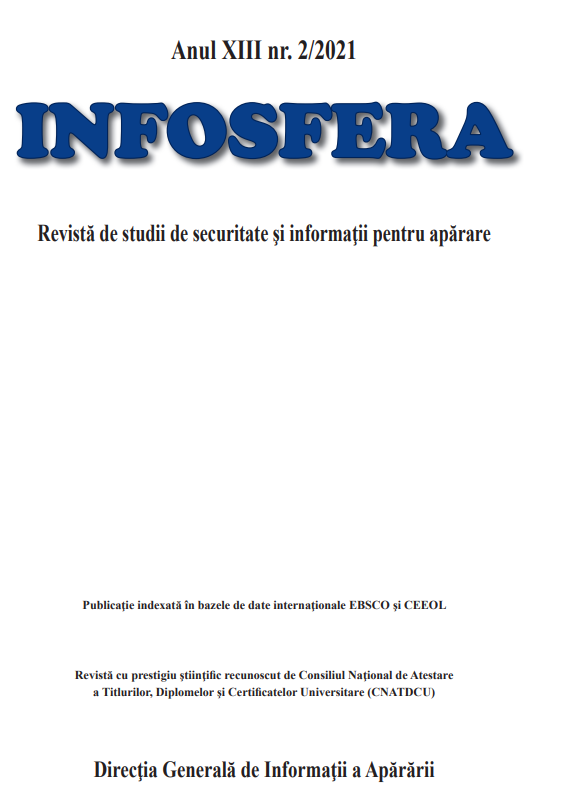Importanța conceptului „cultural intelligence” pentru înțelegerea mediului operațional
The importance of the "cultural intelligence" concept for understanding the operational environment
Author(s): Marian Ștefan, Traian AnastasieiSubject(s): Security and defense
Published by: INFOSFERA - Revista de studii de securitate si Informații pentru Apărare
Keywords: knowledge; culture; threats; conflicts; operational environment.;
Summary/Abstract: The beginning of this century is characterized by a world in which crises and conflicts are real and present in forms and dimensions different from everything the world has experienced so far. We are witnessing a series of ideological, racial and religious transformations generated by regional conflicts in which the threats of a new type of war are becoming increasingly evident. In such an operational environment, it is obvious that the paradigm shift has taken place, with state-centered strategic security becoming paramount in relation to human security (security against underdevelopment, poverty, etc.), which has remained in the background. The international geopolitical reality changes the way we should treat the old concept of war, as defined by Clausewitz (continuation of politics by other means) and realize that several types of war (asymmetric, cybernetic, informational, aggression, etc.) can be used simultaneously by flexible and sophisticated opponents. In addition, the last two major global crises, the economic and health crises, have put severe pressure on the global economy, creating an increased sense of economic vulnerability but also of geopolitical opportunities, fueling competition for resources and sometimes even belligerence. To achieve the success of the planned missions in this dynamic and complex battle space, modern armies and political-military alliances will have to focus on intelligence-based operations that require extensive knowledge of both local populations and belligerents. To be useful, this knowledge must come from an in-depth analysis of the socio-cultural foundations underlying the identification of opponents’ motives and motivations.
Journal: INFOSFERA - Revista de studii de securitate si Informații pentru Apărare
- Issue Year: XIII/2021
- Issue No: 2
- Page Range: 49-59
- Page Count: 11
- Language: Romanian

